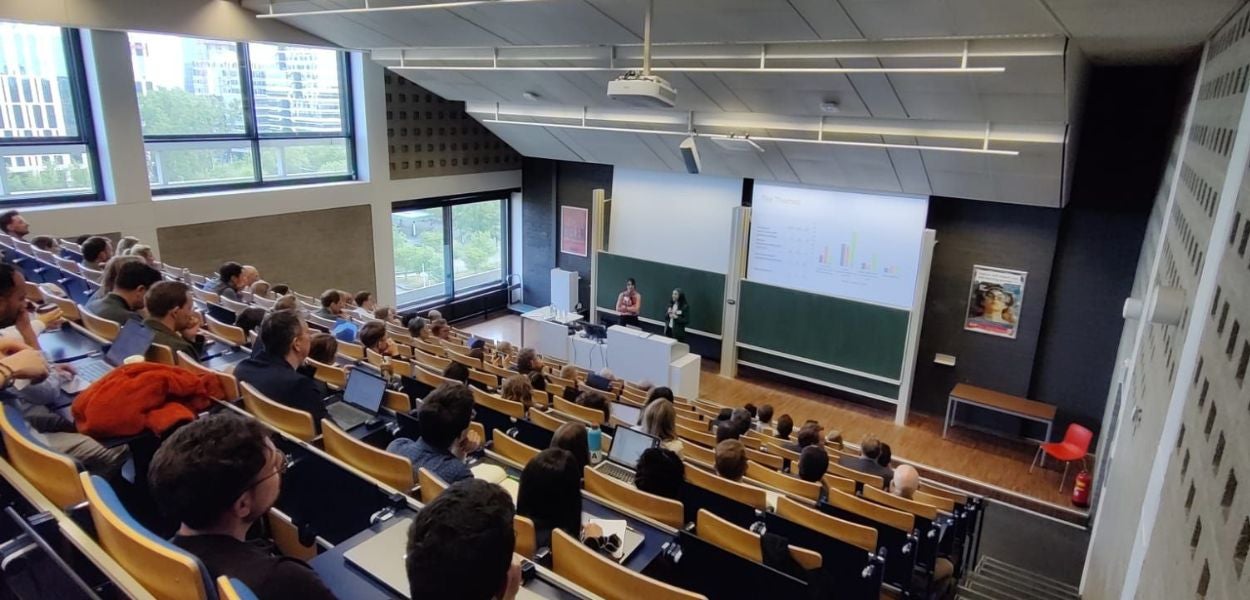Tomislav Karačić from the KIN Center for Digital Innovation has successfully defended his PhD dissertation at the School of Business and Economics, Vrije Universiteit Amsterdam. In his research, he critically examines three widely held assumptions about artificial intelligence (AI), drawing on rich empirical insights from the laboratory practices of biotechnology.
First, the dissertation challenges the notion of AI as a system that autonomously learns from data, emphasizing instead the human creativity and sustained effort required to make AI systems function in practice. Second, it moves beyond the prevailing view of AI as purely digital, highlighting the material culture in which AI is embedded—ranging from physical objects and bodily practices to supporting infrastructure. Third, it questions the idea that AI is primarily directed at automating or augmenting knowledge work. Karačić demonstrates how AI can also reshape seemingly menial tasks, positioning them as vital to the production of organizational knowledge.
Along with her thesis supervisors, Marleen Huysman, Anastasia Sergeeva, and Wendy Günther, Karačić is a member of AI@Work research group who study how AI and digital technologies change the way organizations work. He will remain affiliated with the AI@Work research group, led by Marleen Huysman, where he continues to explore the evolving role of AI in professional and organizational life.
